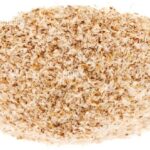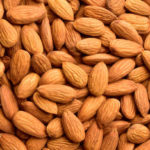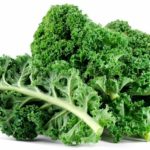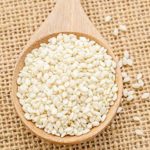Dear Readers, Vitamins regulate the chemical reactions in thousands that sustain life. All 13 vitamins exert completely different actions. Vitamin K gets less attention but it very important for our health. Let’s know about vitamin K health benefits to prevent high-risk diseases.
Vitamin K Health Benefits in Detail
The vitamin K is first discovered in 1929, vitamin K is fat-soluble compounds which are required for all organisms such as bones, blood, and tissues.
Vitamin K is available in two forms: Vitamin k1 (phylloquinone), this is available in leafy vegetables. Vitamin K2 (menaquinones), present in fermented foods and animal livers.
Know about: Excellent Home Remedies for Silky and Smooth Hair Naturally
Vitamin K does the excellent job of synthesizing a few proteins present in the body. Vitamin K metabolizes very fast and the body recycles and reuses vitamin K in a small amount so many times repeatedly. It is necessary to take vitamin K rich food in each meal.
Healthy Blood Clotting with Vitamin K
Vitamin K is known as the “coagulation vitamin”. The name Vitamin K is derived from German koagulations vitamin, the first term used to describe it.
When someone injured physically, the steps to heal the wound is coagulation, where blood liquid form turns into a gel. For this process calcium ions in the blood need to be bind to certain proteins.
So vitamin K is a must to complete this process, which is known as coagulation cascade. Vitamin K helps to clot the blood and stop bleeding.
People who are taking blood-thinning medications take the doctor to advise before the intake of vitamin K.
Vitamin K for Strong Bones
As we age vitamin K along with vitamin D and calcium protects bone health.
In an observational study of 10 years, which is involved over 72000 women between 38 to 63 age. Researchers stated that there was a lower risk of hip fractures when there is a good amount of vitamin K is available in their regular diet.
Women can eat lettuce regularly have less risk of hip fracture than those who ate lettuce once in a week. Vitamin K gets absorb by the body in the best way when it takes along with vitamin D.
In another four years study that followed 2591 volunteers, women with less vitamin K intake has the lower mineral density of the bone in the spine and neck.
Vitamin K is Best for Heart
The cardiovascular disease leads to heart attack, stroke, angina, heart failure, arrhythmia, an aneurysm. A common precursor all types of cardiovascular diseases is atherosclerosis, due to the plaque, the arteries become narrow. Over time the plaque becomes hard and clacifies, increase the risk of rupture followed by a cardiovascular event.
There is the link between low bone mass and calcification of the arteries, dubb the “calcification paradox”, that is generally common postmenopausal women. Lack of vitamin K leads to these conditions.
Vitamin K prevents arteries from calcifying and promotes bone mineralization.
Read about: Home Remedies for High Blood Pressure Treatment
Vitamin K Lower Cancer Risk
On vitamin K in vitro studies have stated that it has an anti-proliferative effect on the cells of cancer of the stomach, liver, and lung.
A large observational study published in “The American journal for clinical nutrition” involved more than 24000 participants age between 35-68 who were cancer-free at enrollment.
After 10 years of follow up, 1755 diagnoses of cancer and 458 cases were fatal. Researchers found that there is an association between higher consumption of vitamin K2 and lower rate cancer, including fatal cancer.
Vitamin K Longevity
Vitamin K reduces the risk of cancer and cardiovascular disease. Scientists have wondered how vitamin K may affect generally one’s lifespan.
According to the study of 2014 which is published in “The Journal of nutrition” the intake of vitamin K in large amount regularly reduce mortality risk from all different causes.
A study on 7216 individuals, who were at a higher cardiovascular disease risk, researchers checked after 5 years and found that the intake of vitamin K1 and K2 significantly reduced the risk of cardiovascular disease, cancer, and death from other diseases compared to the people who take less vitamin K foods.
Neuroprotective with Vitamin K
Vitamin K is also essential for the synthesis of sphingolipids. It is a type of fat found in the brain in high concentrations. The major components of brain cell membranes are sphingolipids. In order to function properly, they depend on vitamin K protein.
Sphingolipids are beneficial for brain health and cognition. A 2013 study of adults age between 70-85 years old found the presence of vitamin K in the body was essential with the power to remember past experiences.
Another study stated that people with a lack of vitamin K had more “memory complaints”. After consuming vitamin K the same individuals reported as their memory improved.
Vitamin K1 & K2 Best Food Sources
The intake of vitamin K for individuals over the age of 19 years is 90 micrograms for women 120 for men.
Best food sources of vitamin K are parsley, kale, swiss chard, dandelion greens, mustard greens, collard greens, spring onions, spinach, beet greens, turnip greens, brussels sprouts, broccoli, cabbage, and leaf chicory.
Vitamin K2 sources can find in ferment foods such as egg yolks, soft and hard cheese, and chicken liver.
Consuming plenty of vegetables rich in vitamin K1 helps to obtain vitamin K2 as our body has the ability to convert phylloquinone to menaquinones with the help of bacteria present in the gut.
Leave your feedback in the below mention comment box.













Trusting to make the right decisions can be tough. It takes years to build confidence. Its not the sort of thing that simply just happens.